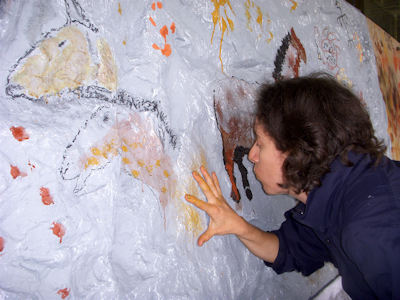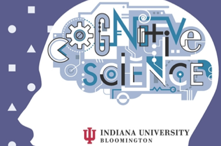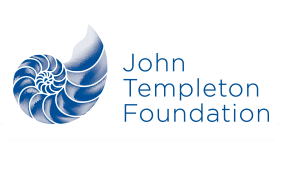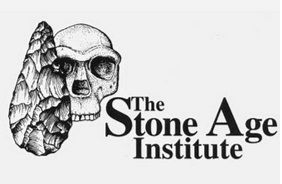What are we up to
Research team members participate in language evolution workshop
Sept 05, 2017
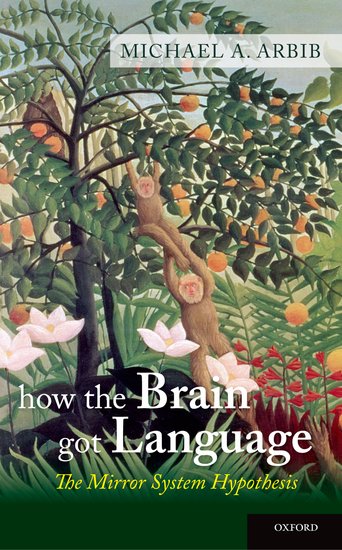 Dr. Tom Schoenemann and Dr. Shelby Putt were invited to participate in the NSF funded workshop, 'How the Brain Got Language: Towards a New Road Map,' held August 29-31 in La Jolla, California. Eighteen scientists from various disciplines joined host, Dr. Michael Arbib, to discuss relevant data and theories concerning the brains, behaviors and communication systems of monkeys, apes and humans to raise hypotheses about our last common ancestors with monkeys and apes as a basis for investigating the biological and cultural evolution of the human-language-ready brain. Dr. Schoenemann’s talk was titled, “Broca’s region in sequential processing in apes and humans: Enhanced conceptual complexity as a driver of language evolution.” Dr. Putt’s talk was titled, “Tracing the evolutionary trajectory of verbal working memory with neuro-archaeology.” The workshop participants also are preparing companion papers for a special issue on language evolution in the journal, Interaction Studies, to be published toward the beginning of the new year.
Dr. Tom Schoenemann and Dr. Shelby Putt were invited to participate in the NSF funded workshop, 'How the Brain Got Language: Towards a New Road Map,' held August 29-31 in La Jolla, California. Eighteen scientists from various disciplines joined host, Dr. Michael Arbib, to discuss relevant data and theories concerning the brains, behaviors and communication systems of monkeys, apes and humans to raise hypotheses about our last common ancestors with monkeys and apes as a basis for investigating the biological and cultural evolution of the human-language-ready brain. Dr. Schoenemann’s talk was titled, “Broca’s region in sequential processing in apes and humans: Enhanced conceptual complexity as a driver of language evolution.” Dr. Putt’s talk was titled, “Tracing the evolutionary trajectory of verbal working memory with neuro-archaeology.” The workshop participants also are preparing companion papers for a special issue on language evolution in the journal, Interaction Studies, to be published toward the beginning of the new year.
Human evolution and the recognition of expertise
Sept 01, 2017
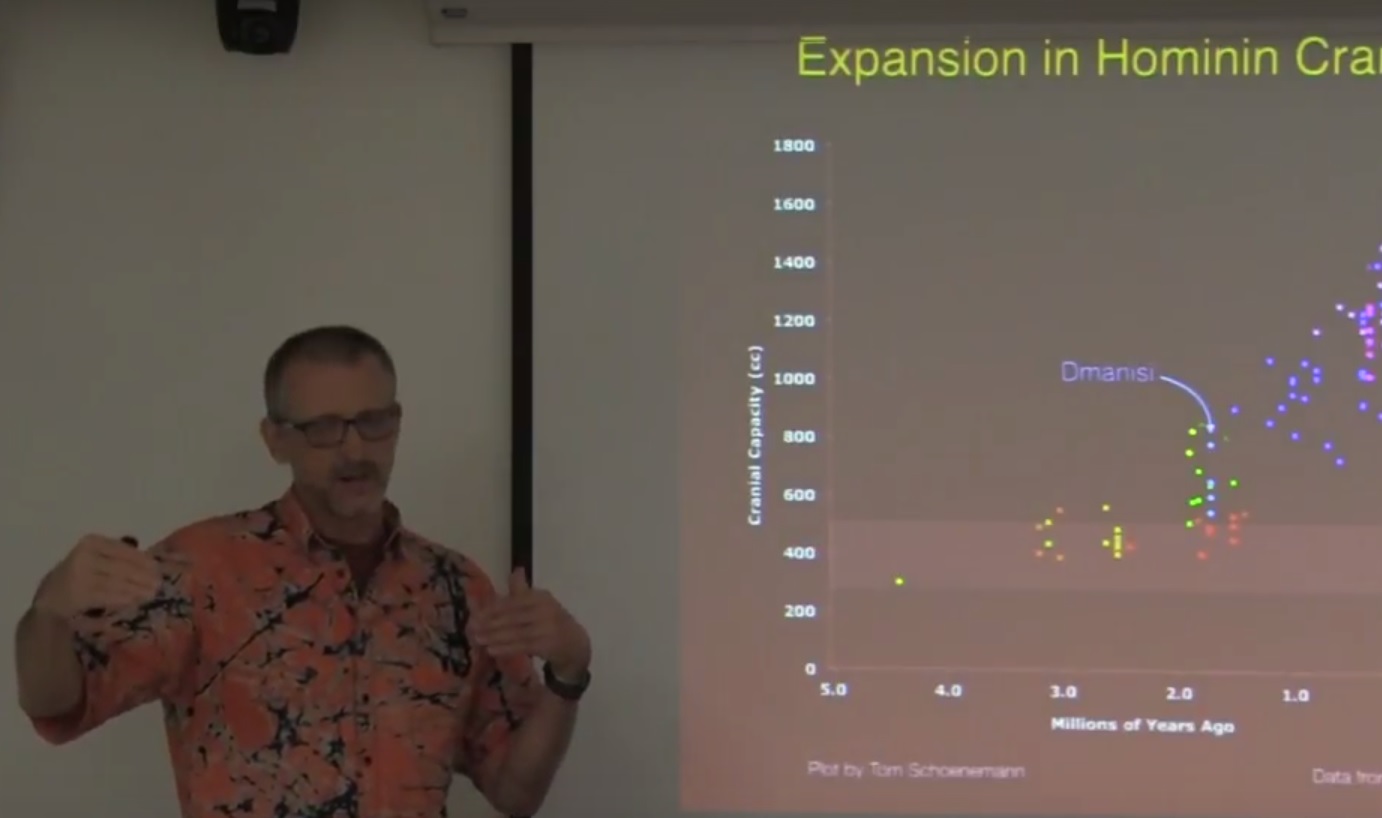 Dr. Colin Allen recently traveled to the Universidad Autonomo de Mexico in Mexico City to give a talk titled, “Human Evolution and the Recognition of Expertise” on May 11 of this year. His talk was part of a conference on Animal Consciousness. Watch his talk and the following discussion here: https://www.youtube.com/watch?v=I3i8iypj1W8
Dr. Colin Allen recently traveled to the Universidad Autonomo de Mexico in Mexico City to give a talk titled, “Human Evolution and the Recognition of Expertise” on May 11 of this year. His talk was part of a conference on Animal Consciousness. Watch his talk and the following discussion here: https://www.youtube.com/watch?v=I3i8iypj1W8
Schoenemann delivers keynote lecture at Evolutionary Linguistics conference
Aug 29, 2017
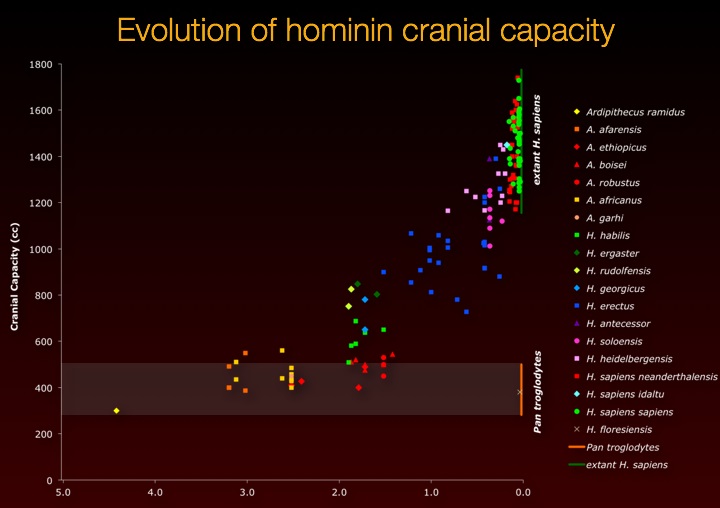 Dr. Tom Schoenemann gave a keynote lecture titled, “Evolution of brain and language” at the 9th Annual Conference in Evolutionary Linguistics, held at Yunnan Minzu University, in Kunming, China, August 25-27.
Dr. Tom Schoenemann gave a keynote lecture titled, “Evolution of brain and language” at the 9th Annual Conference in Evolutionary Linguistics, held at Yunnan Minzu University, in Kunming, China, August 25-27.
Students learn archaeological field methods in "The Cradle of Humankind" - Olduvai Gorge 2017 Field Season
Sept 01, 2017
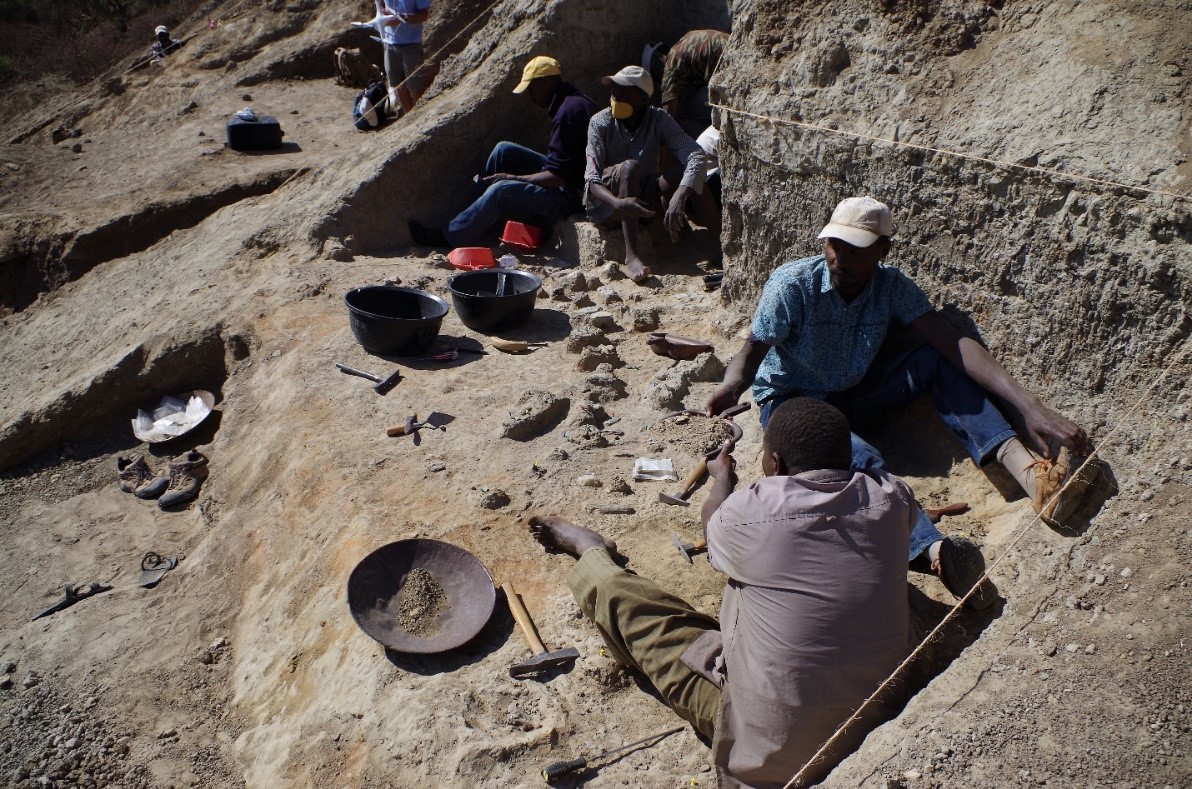 In 2016, a collaborative team of researchers from the Olduvai Gorge Coring Project opened a test trench at Heberer's Gully (HEB), a locality just beneath the Olduvai Museum where Mary Leakey excavated Bed IV deposits in the 1960's and 1970's. This field season, with funding from the John Templeton Foundation, the Stone Age Institute, and the National Science Foundation, the team expanded excavations at the site, targeting the artifact-bearing stratigraphy from Leakey's previous excavations. Over the course of four weeks, the team exposed multiple deposition events and recovered over 800 stone and bone artifacts, including several phonolite handaxes. Future analysis and spatial mapping of these finds will shed light on hominin behaviors in the Gorge about 1 million years ago. The excavations at HEB were also visited by an international team of researchers as part of the Templeton funded workshop on "What Drives Human Cognitive Evolution?"
In 2016, a collaborative team of researchers from the Olduvai Gorge Coring Project opened a test trench at Heberer's Gully (HEB), a locality just beneath the Olduvai Museum where Mary Leakey excavated Bed IV deposits in the 1960's and 1970's. This field season, with funding from the John Templeton Foundation, the Stone Age Institute, and the National Science Foundation, the team expanded excavations at the site, targeting the artifact-bearing stratigraphy from Leakey's previous excavations. Over the course of four weeks, the team exposed multiple deposition events and recovered over 800 stone and bone artifacts, including several phonolite handaxes. Future analysis and spatial mapping of these finds will shed light on hominin behaviors in the Gorge about 1 million years ago. The excavations at HEB were also visited by an international team of researchers as part of the Templeton funded workshop on "What Drives Human Cognitive Evolution?"
Prehistoric Georgia museum exhibit funded by the Stone Age Institute and John Templeton Foundation
April 10, 2017
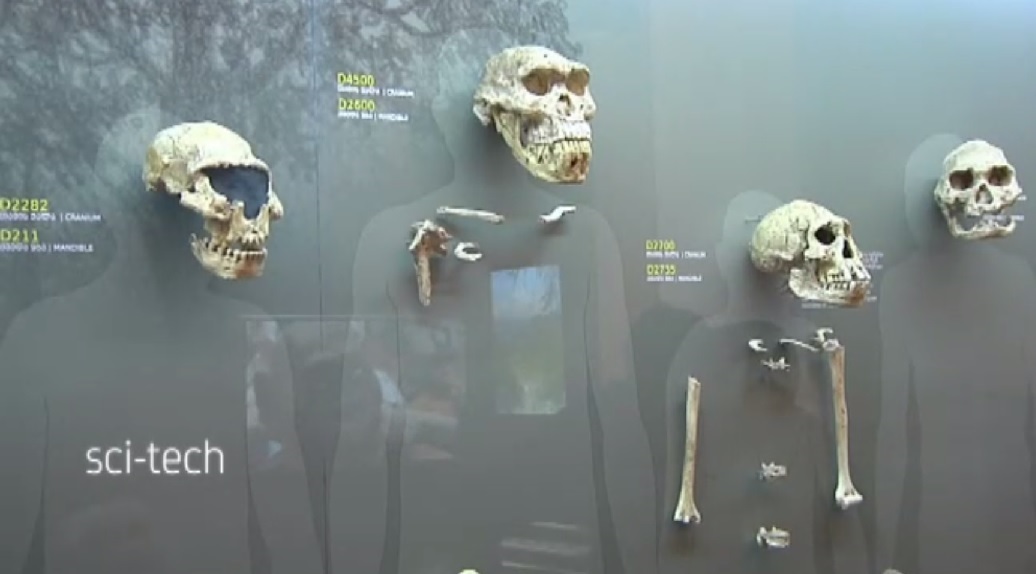 One of the most significant archaeological sites is now on display at the Georgian National Museum in the Republic of Georgia. Dmanisi is a snapshot of life 1.8 million years ago and includes the first human creatures to leave Africa, along with myriad stone tool artifacts and fossil bones of other animal species. The new exhibit is sponsored by the Stone Age Institute and the John Templeton Foundation. Learn more about ‘Stone Age Georgia.’
One of the most significant archaeological sites is now on display at the Georgian National Museum in the Republic of Georgia. Dmanisi is a snapshot of life 1.8 million years ago and includes the first human creatures to leave Africa, along with myriad stone tool artifacts and fossil bones of other animal species. The new exhibit is sponsored by the Stone Age Institute and the John Templeton Foundation. Learn more about ‘Stone Age Georgia.’
Scientists gather in Tanzania for Olduvai Gorge workshop
April 10, 2017
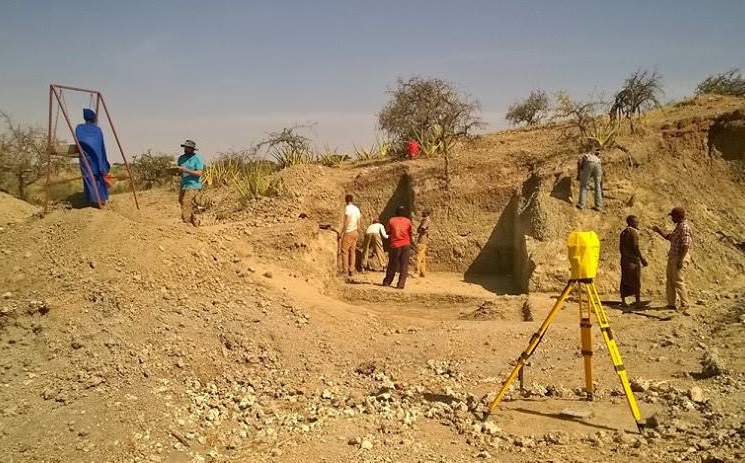 A group of scientists will convene in Tanzania in August for a John Templeton Foundation funded workshop that will focus on human cognitive evolution at the prehistoric archaeological site of Olduvai Gorge, one of the most important sites for paleoanthropology in the world because of the numerous stone tools and early human fossils that have been discovered there.
A group of scientists will convene in Tanzania in August for a John Templeton Foundation funded workshop that will focus on human cognitive evolution at the prehistoric archaeological site of Olduvai Gorge, one of the most important sites for paleoanthropology in the world because of the numerous stone tools and early human fossils that have been discovered there.
Human cognitive evolution in China
February 27, 2017
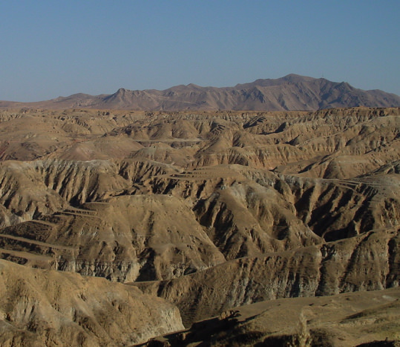 A group of scientists will convene in Beijing, China in March for a John Templeton Foundation funded workshop that will focus on human cognitive evolution at prehistoric archaeological sites in the Nihewan Basin in the Hebei Province, where there is evidence for Oldowan-like stone technologies and fossil animal bones that extend as far back as 1.7 million years ago.
A group of scientists will convene in Beijing, China in March for a John Templeton Foundation funded workshop that will focus on human cognitive evolution at prehistoric archaeological sites in the Nihewan Basin in the Hebei Province, where there is evidence for Oldowan-like stone technologies and fossil animal bones that extend as far back as 1.7 million years ago.
Human Cognitive Evolution course at King Abdullah University
Jan 27, 2017
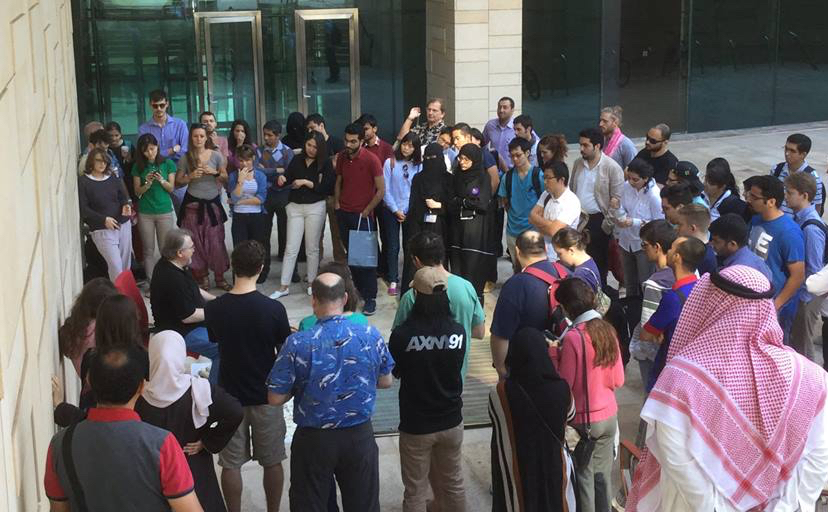 Drs. Kathy and Nicholas Toth recently traveled in January to King Abdullah University for Science and Technology (KAUST) on the Red Sea just outside of Jeddah in Saudi Arabia to give three days of invited lectures on the Evolution of Human Cognition. As a part of their class, they gave a stone tool-making demonstration and taught enthusiastic students the basics of flaking stone.
Drs. Kathy and Nicholas Toth recently traveled in January to King Abdullah University for Science and Technology (KAUST) on the Red Sea just outside of Jeddah in Saudi Arabia to give three days of invited lectures on the Evolution of Human Cognition. As a part of their class, they gave a stone tool-making demonstration and taught enthusiastic students the basics of flaking stone.
Olduvai Gorge Summer Field School Geology and Paleoanthropology
Jan 01, 2017
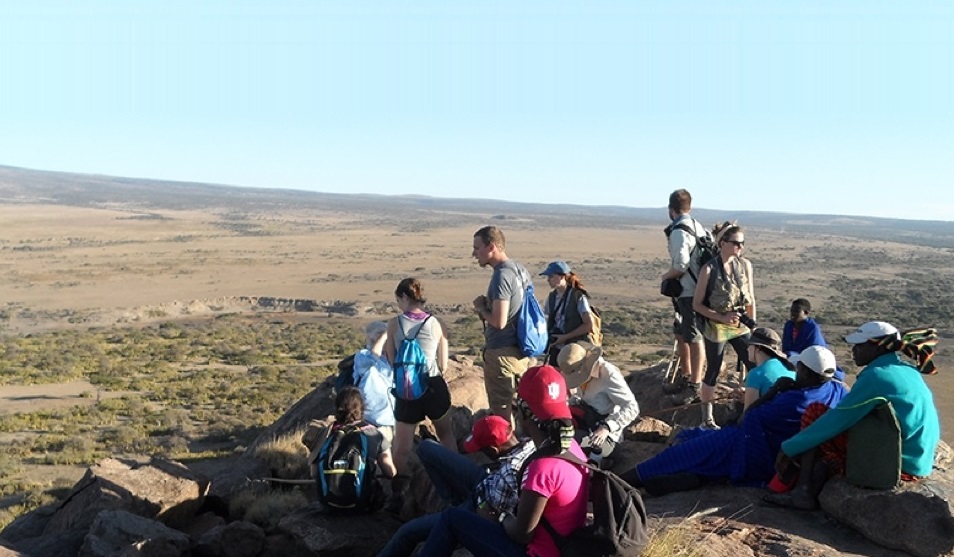 This program offers exciting six-week study abroad experience in Tanzania at the world’s most famous archaeological site. During this intensive field course students will learn fundamentals of geological processes and develop skills in fossil and archaeological exploration by receiving first-hand field experience. The course will emphasize field observations, data recording and interpretation with the goal of understanding physical and biological processes of site formation and human evolution. Students will have the opportunity to conduct field experiments such as measuring stratigraphic sections, stone knapping and bone taphonomy. Students will work closely with the instructors and prominent scientists currently doing research at the Olduvai site to develop and carry out independent research projects.
This program offers exciting six-week study abroad experience in Tanzania at the world’s most famous archaeological site. During this intensive field course students will learn fundamentals of geological processes and develop skills in fossil and archaeological exploration by receiving first-hand field experience. The course will emphasize field observations, data recording and interpretation with the goal of understanding physical and biological processes of site formation and human evolution. Students will have the opportunity to conduct field experiments such as measuring stratigraphic sections, stone knapping and bone taphonomy. Students will work closely with the instructors and prominent scientists currently doing research at the Olduvai site to develop and carry out independent research projects.
Learn more
Upcoming Events
John Templeton Foundation Weekly Seminar Series.
Past Events
John Templeton Foundation Weekly Seminar Series.
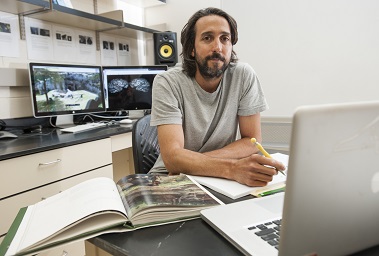
How do apes communicate?
Dr. Jared Taglialatella
Kennesaw State University
Where: March 1, 2017 at 2:00 pm, IU
John Templeton Foundation Weekly Seminar Series.
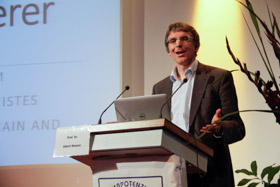
What does it mean to have a belief?
Dr. Albert Newen
Ruhr-Universität Bochum
Where: February 22, 2017 at 2:00 pm, IU
John Templeton Foundation Weekly Seminar Series.
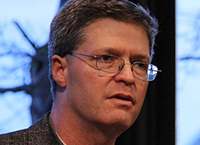
Information exploitation strategies to drive Human Cognitive Evolution
Dr. Peter Todd
Indiana University
Where: February 15, 2017 at 2:00 pm, IU
John Templeton Foundation Weekly Seminar Series.
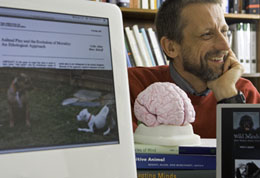
Talk: "Evolving Expertise within the Socio-Technological Complex as a Driver of Human Cognitive Evolution.”
Dr. Colin Allen
Indiana University
Where: February 8, 2017 at 2:00 pm, IU
